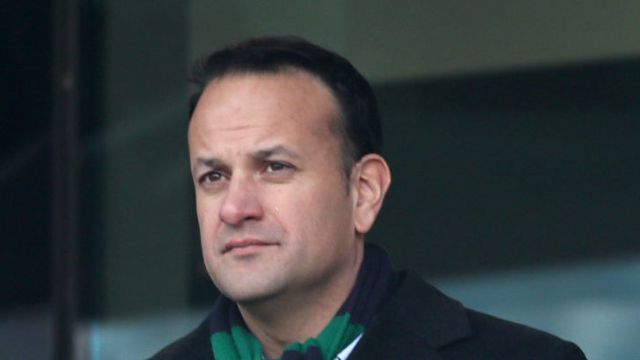Tánaiste Leo Varadkar has said it is important for the Irish Rugby Football Union (IRFU) to listen to the people who may be excluded from playing sport, after the rugby organisation announced a decision to ban trans women from playing contact rugby.
Speaking from Roscommon town for the opening of Fine Gael Senator Aisling Dolan’s office, Mr Varadkar said: “I think it’s something that sporting bodies in Ireland and around the world are really struggling with.
“I think it is very important that the IRFU and World Rugby and anybody that’s making decisions on this listens to the voice of those who are most affected, and of course those who are potentially most affected here are those who may be excluded from playing sport.
“I think it is very important that their voice is heard in this debate,” the Fine Gael leader said.
The IRFU said in a statement on Wednesday that two registered players in Ireland will be affected by the policy alteration, which kicks in for the forthcoming season.
They have been contacted to discuss options to remain active in the sport, which include non-contact playing formats, such as tag rugby, refereeing, coaching and volunteering.
Citing its reasoning for the decision, the IRFU said recent research provides evidence of male-born players having “significant” advantages in strength, stamina and physique to those born female due to male puberty, which are “retained even after testosterone suppression”.
In the men’s game, players whose sex is recorded female at birth may continue to play, subject to providing written consent and a risk assessment being carried out.
Moninne Griffith, chief executive of Belong To and co-director of Trans Equality Together, said the decision would have “deep-reaching negative consequences across society”.
“It is openly sending a message to trans people, their families and allies that they are not welcome in the rugby community,” she added.
Legal rights organisation FLAC has expressed concerns that instances of exclusion from the sport based on the IRFU’s new policy “may amount to unlawful discrimination contrary to the Equal Status Acts”.
FLAC said it could also raise a number of a number of human rights concerns in the participation of transgender people in the activities of the IRFU, including their rights to privacy, data protection, dignity and bodily autonomy.
FLAC managing solicitor Sinead Lucey said that while the Equal Status Acts allow for different treatment based on gender in sporting events, this exception only applies where the treatment can be shown to be “reasonably necessary”.
“The exception, therefore, does not appear to permit a blanket policy of this kind which, by its nature, excludes an event-specific decision in relation to the participation of a trans person,” she added.







